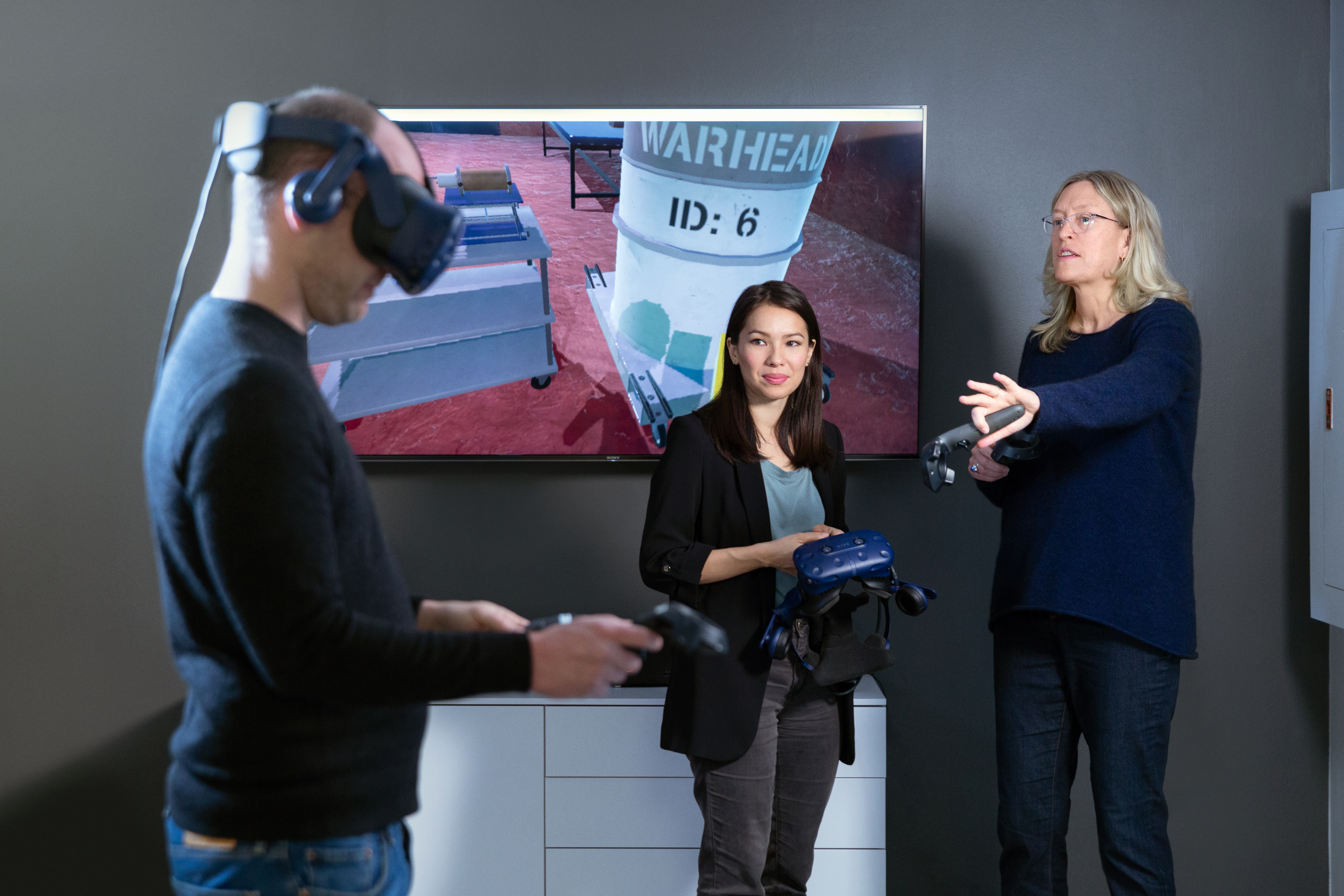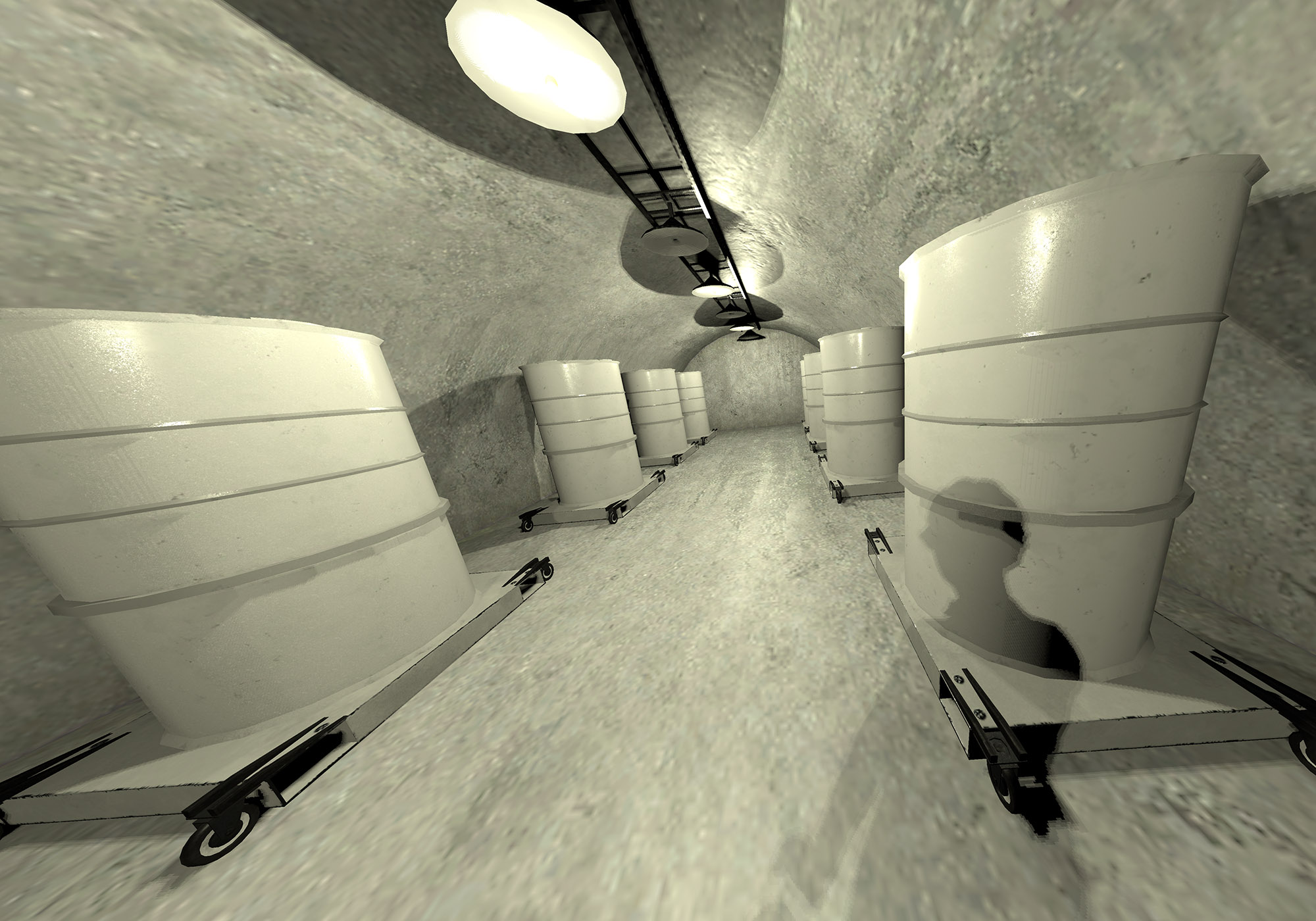Virtual reality (VR) offers a new space to support researchers and policy makers in developing a shared, hands-on understanding of nuclear treaty verification challenges. VR provides a means to cooperatively create and interact in flexible environments to explore new approaches, which can build confidence and lay a basis for live exercises and new initiatives.
Our team's use of the portable HTC Vive VR system allows us to bring virtual inspection environments and scenarios directly to our partners and events. This enables the simulation of new ideas to help gain greater insight on strengths and weaknesses of new verification approaches, or to generate collective understanding of a concept.

VR offers opportunities for collaboration even under politically difficult circumstances. Through networking and co-presence, VR exercises can be planned and carried out from a distance and, given their nature, they avoid the difficulties of allowing foreign personnel into sensitive high-security sites and the risks of inadvertent disclosure of sensitive information.
VR has been successfully used to support a variety of applications relevant to nuclear safeguards, safety, and security, including inspector training for the International Atomic Energy Agency (IAEA). Our research group is exploring the potential of VR environments for cooperation in these areas, as well as for developing solutions for nuclear disarmament, arms control and fissile material measures.
The SGS team is also engaged in a VR project in partnership with Games for Change, Archer's Mark and Atlas V that aims to bring the issue of nuclear dangers to a wider public audience. Read more about the project here.
